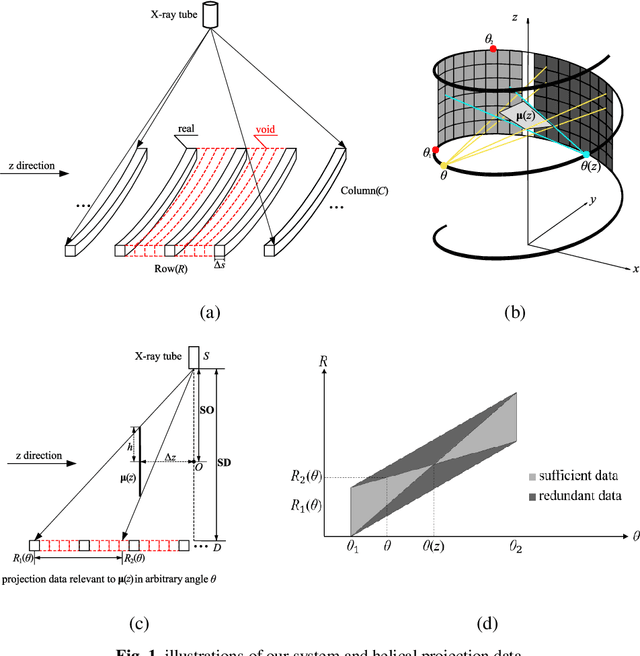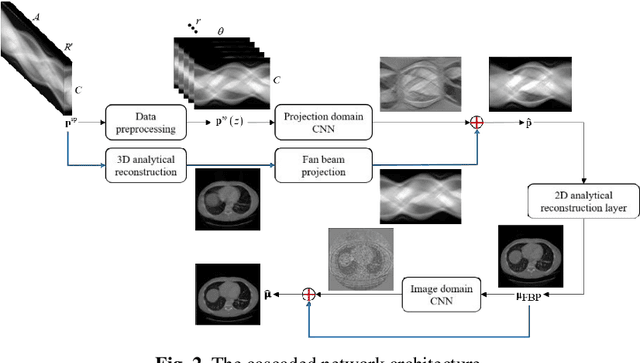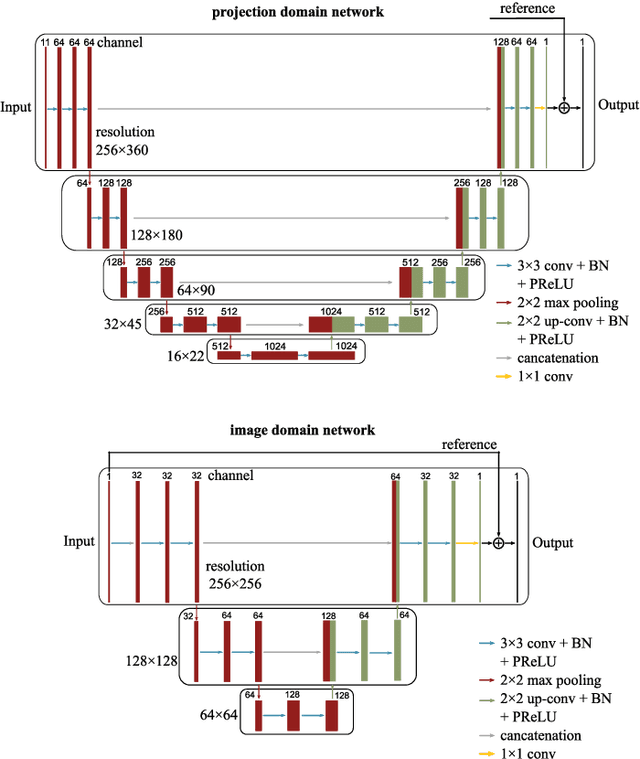A cascaded dual-domain deep learning reconstruction method for sparsely spaced multidetector helical CT
Paper and Code
Oct 23, 2019



Helical CT has been widely used in clinical diagnosis. Sparsely spaced multidetector in z direction can increase the coverage of the detector provided limited detector rows. It can speed up volumetric CT scan, lower the radiation dose and reduce motion artifacts. However, it leads to insufficient data for reconstruction. That means reconstructions from general analytical methods will have severe artifacts. Iterative reconstruction methods might be able to deal with this situation but with the cost of huge computational load. In this work, we propose a cascaded dual-domain deep learning method that completes both data transformation in projection domain and error reduction in image domain. First, a convolutional neural network (CNN) in projection domain is constructed to estimate missing helical projection data and converting helical projection data to 2D fan-beam projection data. This step is to suppress helical artifacts and reduce the following computational cost. Then, an analytical linear operator is followed to transfer the data from projection domain to image domain. Finally, an image domain CNN is added to improve image quality further. These three steps work as an entirety and can be trained end to end. The overall network is trained using a simulated lung CT dataset with Poisson noise from 25 patients. We evaluate the trained network on another three patients and obtain very encouraging results with both visual examination and quantitative comparison. The resulting RRMSE is 6.56% and the SSIM is 99.60%. In addition, we test the trained network on the lung CT dataset with different noise level and a new dental CT dataset to demonstrate the generalization and robustness of our method.
 Add to Chrome
Add to Chrome Add to Firefox
Add to Firefox Add to Edge
Add to Edge